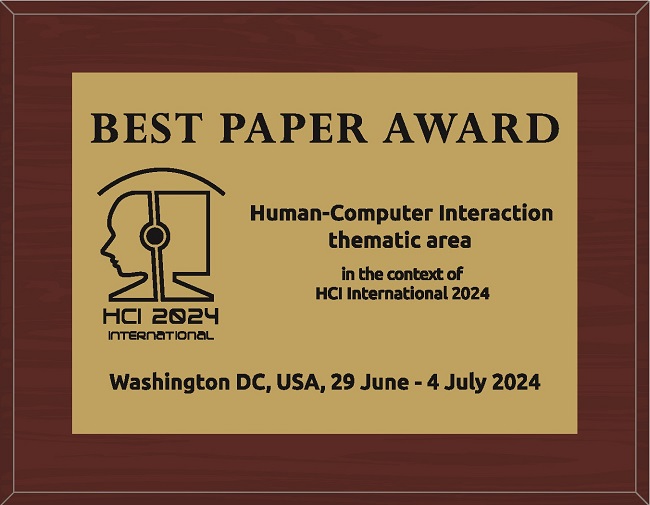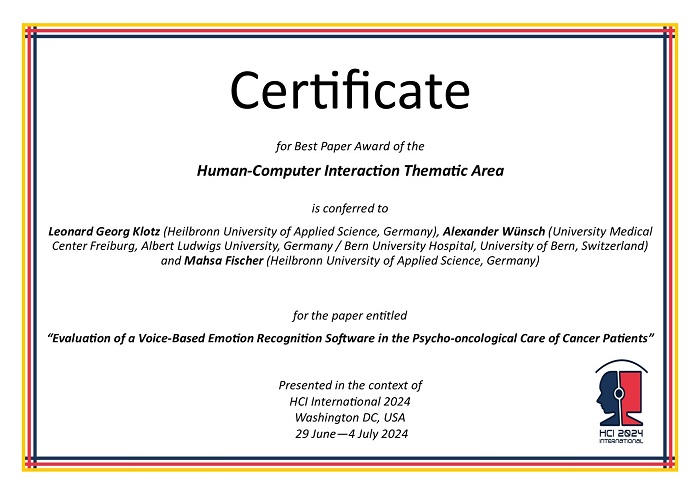
The Best Paper Award of the Human-Computer Interaction Thematic Area
has been conferred to
Leonard Georg Klotz (Heilbronn University of Applied Science, Germany),
Alexander Wünsch (University Medical Center Freiburg, Albert Ludwigs University, Germany / Bern University Hospital, University of Bern, Switzerland) and
Mahsa Fischer (Heilbronn University of Applied Science, Germany)
for the paper entitled
"Evaluation of a Voice-Based Emotion Recognition Software in the Psycho-oncological Care of Cancer Patients"

Leonard Georg Klotz
(presenter)

Best Paper Award for the Human-Computer Interaction Thematic Area, in the context of HCI International 2024, Washington DC, USA, 29 June - 4 July 2024

Certificate for Best Paper Award of the Human-Computer Interaction Thematic Area presented in the context of HCI International 2024, Washington DC, USA, 29 June - 4 July 2024
Paper Abstract
"Due to the increasing global incidence of cancer, the growing number of long-term survivors and the prevalence of psychological distress among cancer patients, psycho-oncological support is becoming more crucial. Recognizing the rising demand for psycho-oncological care the “Cancer Counselling App” project was initiated. As part of this project, a cancer counselling app is being developed. The development of the app incorporates the investigation a of voice-based emotion recognition which is enabled through the increasing capabilities of machine and deep learning algorithms, aiming to support the psycho-oncological care of cancer patients. The objective of this study is to identify use cases for this functionality and determine which of them are suitable for enhancing the psycho-oncological care. Through a literature review and expert interviews, seven distinct use cases were identified and evaluated. The highest-priority use case for voice-based emotion recognition is the long-term monitoring of the emotional state of cancer patients. The functionality should particularly focus on the emotions anxiety and distress, along with the psychological disorder depression, to effectively support psycho-oncological treatment."
The full paper is available through SpringerLink, provided that you have proper access rights.